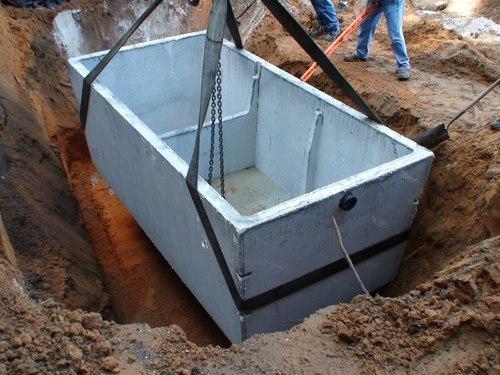The importance of Septic Tank Emptying

The significance of thorough drainage system cleaning and upkeep should be self-evident to most, especially those who have had to deal with a blockage or clogged drain. Costs are rapidly increasing, and there’s a good possibility that your drains will back up if you don’t act right away. Preventing your drains from getting to this point in the first place is the best approach to avoid the trouble.
Septic tanks, like all other tanks, must be emptied regularly to maintain their health and usefulness. Those who aren’t part of the city’s sewage system rely on septic tanks or cesspools to collect and break down waste, which over time can lead to sludge build-up and irreparable deposits.
Because of its deep structure, which allows it to sense the water level and direct water flow into or out of the tank, a blockage in this pipe can result in a variety of issues. The chemicals used in cesspools and septic tanks can be highly damaging to the environment if they leak, and a poorly maintained tank may produce excess carbon dioxide and methane as well.
In most situations, emergency de-sludging is an option, but prevention is always preferable to cure, and regular septic tank emptying, and cleaning is the greatest method to avoid future problems. OMDI provide services that do just this. Whether you’re a business owner looking for a greener way to process and recycle wastewater, or a homeowner with a property that is not connected to the main sewage pipes, our team can help you find the most cost-effective solution.
The floor of the tank, where most solids develop, is usually cleaned with a high-powered water jet system. It’s critical not to remove all sludge from the tank, as this is where bacteria that are required for waste processing thrive.
Cleaning your septic tank regularly also has the advantage of extending its lifespan, reducing the risk of damage and saving you money on expensive repairs or replacements.
You should also maintain your septic system to prevent it from becoming blocked or malfunctioning. Cooking oils and fats, for example, don’t dissolve readily, so if possible, don’t flush them down the toilet or into a cesspool or sewage tank to avoid clogging. Cigarettes, hygiene products, and other non-biodegradable things are also notorious for causing severe blockages.
Avoiding adding chemicals to your tank, whether on purpose or not, is also critical since these may disrupt the natural septic bacteria balance. Pesticides and herbicides are examples of items that should be avoided, as well as bleach-based goods such as silver nitrate.
Septic Tanks Are Beneficial to the Environment
Septic tanks filter waste by relying on the natural filtering process of the soil. Before reaching the leach field or drain field, wastewater is filtered by the septic tank. The soil cleans bacteria after wastewater has left the septic tank, making the water fit to be re-used. Septic tanks allow for a healthy local water table to develop naturally. Septic tanks assist in this cycle by recycling wastewater and fostering biodiversity in local areas.
Decades can pass before a septic tank is replaced.
A septic tank may last a long time if properly maintained and pumped regularly. In most cases, septic tanks survive for 20 to 40 years. With proper care and maintenance, it is possible to run a septic tank for an extended period. It’s critical to find the right expert to maintain the tank and prevent blockages and other problems.
Septic Tanks Are a Cost-Effective Solution
Installing new pipes to connect a public sewage system to your property is generally more expensive than using a septic tank. If your home is greater than an acre, a septic tank will most likely be less expensive. The cost of constructing a tank varies widely depending on where you reside and the type of system you require. In the long term, purchasing and operating a septic tank pump will be less costly than relying on a public sewage system.
If you’re looking to install a septic tank, or alternatively if you’re looking for a company to maintain the septic tank, why not contact OMDI today for a quote.




